Biblical History
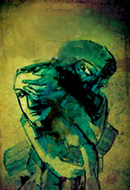 The Evil Inclination
The Evil InclinationMonday, December 5, 2011 by Raphael Magarik | Jewish Ideas Daily » Daily Features
The yetzer hara, usually translated "evil impulse," is an elusive rabbinic concept. The words derive from God's observation in Genesis 8:21 (paralleled earlier in 6:5) that "the imagination of man's heart is evil from his youth."
 Reconstructing Judaism
Reconstructing JudaismWednesday, August 3, 2011 by Joseph J. Siev | Jewish Ideas Daily » Daily Features
At a time when all three major Jewish denominations in America—Orthodox, Conservative, and Reform—find themselves in a state of deep internal fracture, a fourth and much smaller movement, Reconstructionism, has just voted to create a unified body to coordinate the activities of its lay and rabbinical arms.
 The Bible and the Good Life
The Bible and the Good LifeThursday, July 14, 2011 by Aryeh Tepper | Jewish Ideas Daily » Daily Features
What manner of work is the Hebrew Bible? The 17th-century freethinker Baruch (Benedict) Spinoza had an answer. As part of his war to emancipate philosophy from the influence of religion, he reduced the biblical message to, in effect, one word: obedience.
 The Reluctant Renegade
The Reluctant RenegadeTuesday, July 12, 2011 by Elliot Jager | Jewish Ideas Daily » Daily Features
Since its founding, Conservative Judaism in the U.S. has defined itself in sharp contrast to Reform, pursuing a more religiously centrist and Zionist middle course. Its UK parallel, Masorti ("traditional") Judaism, was born as a secession movement from Orthodoxy—inspired by theologian Louis Jacobs.
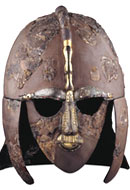 Israelites in the Anglo-Saxon Sea
Israelites in the Anglo-Saxon SeaFriday, June 17, 2011 by David Curzon | Jewish Ideas Daily » Daily Features
Since it was first composed, there have been dozens—if not hundreds—of renderings of the Hebrew Bible. The process of translation and creative elaboration began during the first millennium B.C.E.
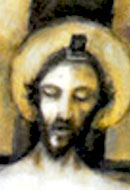 Jesus for Jews
Jesus for JewsWednesday, June 15, 2011 by Eve Levavi Feinstein | Jewish Ideas Daily » Daily Features
That Jesus lived and died a Jew would hardly be regarded as news by most educated Jews and Christians today. Still, while the historical Jesus is ever-elusive, the figure of Jesus, for Jews, has become more accessible.
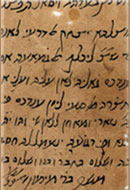 Sifting the Cairo Genizah
Sifting the Cairo GenizahFriday, April 1, 2011 by Lawrence Grossman | Jewish Ideas Daily » Daily Features
Everyone knows about the Dead Sea Scrolls, discovered over 60 years ago, and about the new light they shed on the sectarian Judaism of late antiquity, the beginnings of rabbinic Judaism, and possibly the prehistory of Christianity. Fifty years before that, the Cairo Genizah similarly revolutionized the picture of the Jewish Middle Ages.
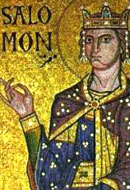 Seeking Solomon
Seeking SolomonTuesday, March 29, 2011 by Eve Levavi Feinstein | Jewish Ideas Daily » Daily Features
For traditionalists, the biography of King Solomon is enshrined in the Bible, in the narrative accounts in the books of Kings and Chronicles. The son of King David, who spent his career battling Israel's enemies, Solomon is depicted as ushering in an era of peace and prosperity. Yet the Bible also relates that Solomon took numerous foreign wives and concubines—one thousand in total—who led him to worship foreign gods and build shrines for their service.
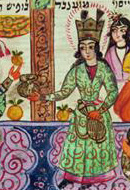 Purim Puzzles
Purim PuzzlesFriday, March 11, 2011 by Lawrence Grossman | Jewish Ideas Daily » Daily Features
Purim, Judaism's strangest holiday (which this year falls on March 20), is prescribed by what may be the strangest book in the Hebrew Bible, the scroll (m'gilah) of Esther. Two public readings of the book, one at night and the other in the morning, tell a story of Persian palace intrigue in the fifth century B.C.E., a recitation accompanied by the holiday's decidedly unspiritual noisemaking, tippling, and masquerade.
 From New Year to Arbor Day
From New Year to Arbor DayWednesday, January 19, 2011 by Moshe Sokolow | Jewish Ideas Daily » Daily Features
The holiday of Tu Bishvat ("the fifteenth of Shvat") falls this year on Thursday, January 20. What are its origins, and when and why did it become incorporated into the calendar as the Jewish "Arbor Day"?
Editors' Picks
Why Hebrew? Douglas Mangum, Biblia Hebraica et Graeca. When, and especially why, did the ancient Israelites abandon the Babylonian lingua franca and start producing literature in their own language? And why did Hebrew survive? (Part 1 of 2.)
The Archeology Wars Robert Draper, National Geographic. Was the Jerusalem of David and Solomon a little cow town, or the capital of a glorious empire?
One Nation, Under God Dov S. Zackheim, Foreign Policy Research Institute. The ancient Israelite experience in nation-building differed from the American experience in many ways; but what is striking, and not accidental, are the similarities.
How Bad Was Jezebel? Janet Howe Gaines, Biblical Archaeology Review. Every biblical word condemns her, but is there not something—much—to admire in this ancient queen?
Ugaritic, Unriddled Philologos, Forward. An ancient Semitic language has been re-deciphered in record time by MIT computers, creating a bonanza for biblical studies.
A Heritage Up for Grabs? David Hazony, Forward. A mini-flap over ownership of the Dead Sea Scrolls is but a skirmish in a larger battle over who owns, and can best protect, physical evidence of the Jewish past.

